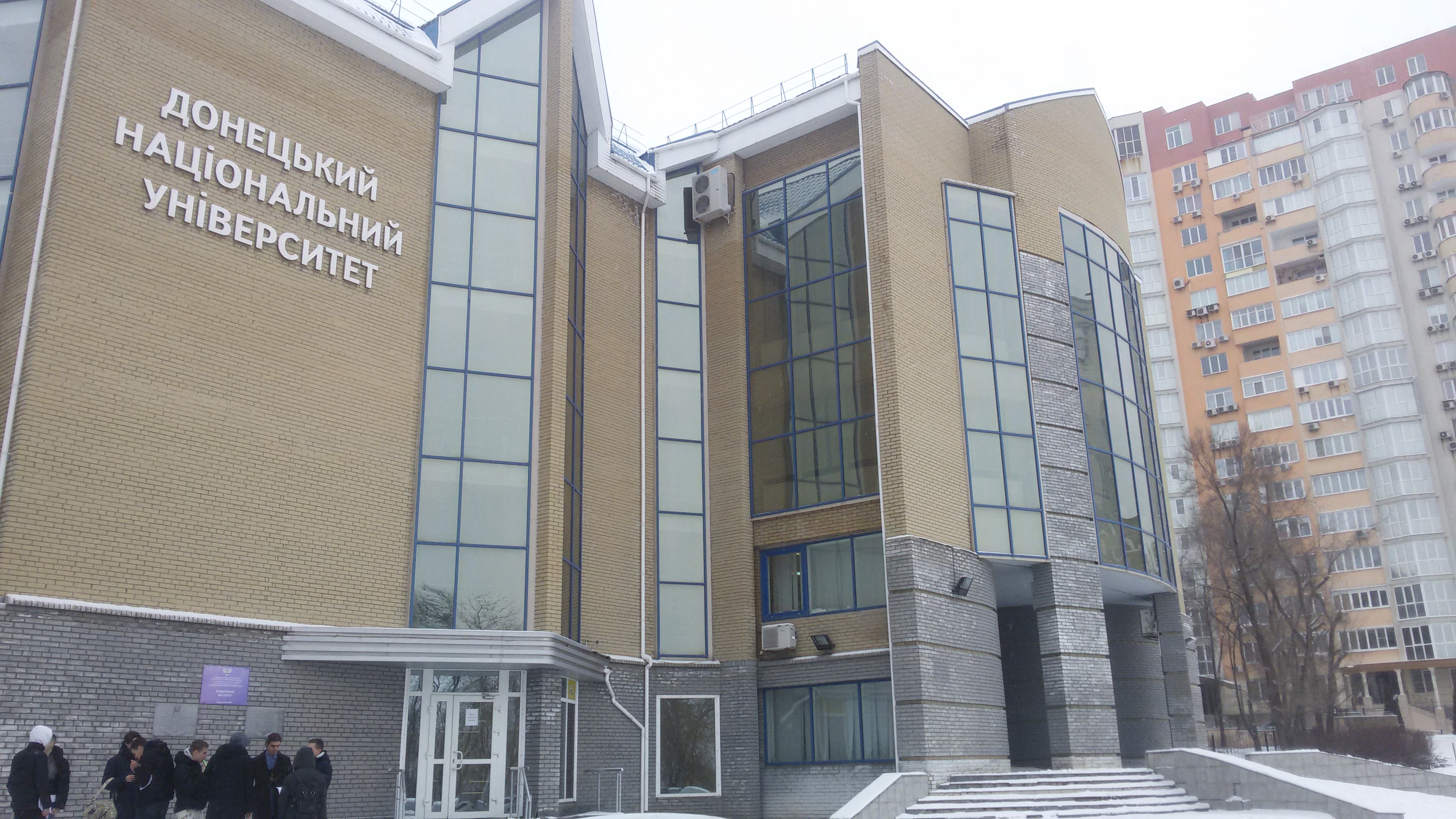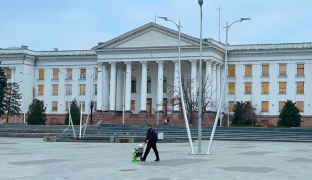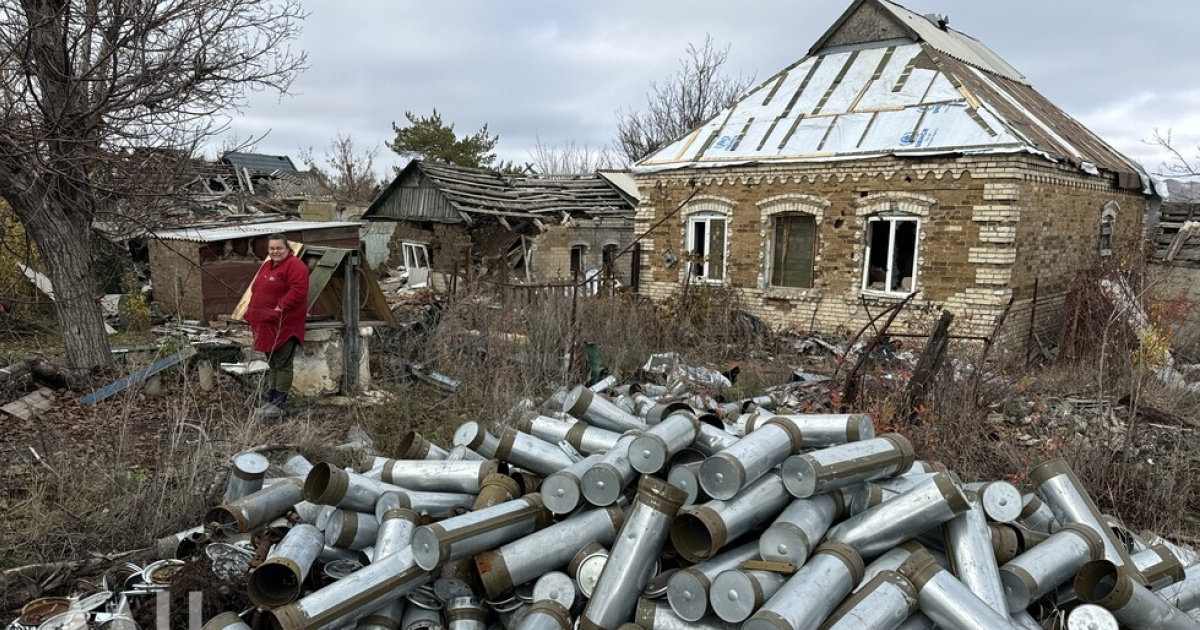
Mykhailo Vinnytsky, Deputy Minister of Education, calls the changes currently taking place in Ukraine's higher education system revolutionary.
Indeed, there is no longer talk of evolution in Ukraine. Negative demographic trends of three decades of independence have been compounded by the occupation and the shock mass migration of 2022-2023. Many children and young people have left Ukraine, and not all of them will return. However, Ukraine itself is now moving faster in the same direction, towards the West, towards Euro-integration.
On April 23, the Verkhovna Rada adopted a bill on the development of individual educational trajectories in the higher education system. Soon, students will be able to individually choose the pace and, accordingly, the duration of their education; bachelor's degree students will also be given the opportunity to choose their specialization not immediately upon enrollment, but after the first year of study.
Another bill is in line, establishing sources and mechanisms for financing higher education. The state order will remain only for certain specialties for which the state can forecast demand, such as teachers and doctors; regional orders will also be introduced. Students will pay for education in other fields either through state grants, preferential loans, or, as today, from their own funds.
In addition to this, the Ministry of Education (MOE) has begun to reduce the number of state universities. Mykhailo Vinnytsky states that out of approximately 170 educational institutions currently operating in Ukraine, around a hundred should remain. Furthermore, state universities should no longer have branches; they too will be reorganized.
The Ministry views it this way: over the past 15 years, the number of school graduates in Ukraine has dropped by more than 40 percent. The number of higher education institutions has also decreased during this period, but significantly less dramatically, by approximately 20 percent. Therefore, while previously there were 6.7 thousand students per educational institution, now there are 3.4 thousand.
All of this significantly affects the efficiency of state expenditures on universities and the quality of education they provide. The reforms that have been initiated are intended to make Ukrainian higher education more qualitative and competitive. But this path is not expected to be easy.
Politically sensitive issue
When in 2014, part of the leadership, teachers, and students of Donetsk National University decided to leave Donetsk, which was seized by militants, they didn't even know where they were going, recounts Anton Liahusha, who taught history at Donetsk National University at the time. Like the other universities relocated from the Donetsk and Luhansk oblasts, Donetsk National University found itself in a smaller city, Vinnytsia, far from home.
Not all students and applicants decided to follow: Vinnytsia's Donetsk National University began to fill up with Vinnytsia students, creating additional competition for local universities and significantly reducing the overall admission barrier. When in 2020 the "DNR" tightly closed the crossing points along the demarcation line, citing COVID, but actually, it seems, preparing for a major war, the Donetsk share in the former Donetsk University completely disappeared from the classrooms. Only the Donetsk name remained.
But even earlier, both the old and new leadership of the university managed to retain the best personnel from there. Immediately after the relocation to Donetsk National University (DonNU), a struggle for money and influence began, according to Anton Liahusha and others who worked there in 2014-2015. Therefore, everyone who could leave, did.
Liahusha says he stayed for a while only because he promised to stay for the students who followed him from Donetsk. "Just imagine, there were kids who were rejected by their parents because of their political views. I gave them money, even cooked for them". His own salary at that time was up to 1500 hryvnias; no donor support that came to the university had any impact on the well-being of the staff and students, says Liahusha. "In DonNU, I taught seven disciplines five days a week. That's how 'quality' education was there", - he adds.
Now, Donetsk National University is one of those universities relocated in 2014, which rightly faces the prospect of joining another higher education institution. However, Mykhailo Vinnytsky says that even the merger of universities relocated ten years ago is a very politically sensitive issue.
One of them, V.I. Vernadsky Taurida National University (TNU) from Crimea, which was planned to be joined with National University of "Kyiv-Mohyla Academy", one of the most reputable Ukrainian universities, began to resist and caused a scandal. The reorganization process did not start because "this issue was raised at a very high political level", says Vinnytsky.
"Moreover, TNU, if compared by the funding formula, is currently the weakest higher education institution in Ukraine", - notes the deputy minister of education. "It does not have the means to survive because it has neither students nor scientific research. This is purely a political project".
But this month, the government reorganized Donetsk National University of Economics and Trade named after Mykhailo Tuhan-Baranovsky, merging it with Kryvyi Rih National University. The question of reorganizing other universities is currently off the agenda—not only because of resistance but also due to the admission campaign. This campaign will show which universities are still viable, according to Vinnytsky.
The merger of higher education institutions resembles another reform, decentralization, the main stage of which took place in 2015-2020. At that time, territorial communities were allowed to delay consolidation, but this affected their funding and the amounts of special financial support from the state that each community received upon consolidation. Those who did not consolidate during these five years were supposed to be merged administratively at the final stage of the reform.
Mykhailo Vinnytsky says that the merger of universities is indeed based on a similar principle. "University mergers are inevitable. Those who merge now will have the opportunity to use the $1.5 million that the World Bank provides for each merger", - he says.
The only major difference is that there is no prospective plan for merging universities—who will merge with whom. The Ministry of Education has proposals, but they often do not align with the preferences of the university leadership undergoing reorganization. Rectors are given a choice. Moreover, there is no special law for merging universities. Vinnytsky believes that such a bill would have no chance in parliament.
Universities relocated in 2022 are not planned for reorganization yet because displaced students are studying there, and displaced students continue to enroll there.
With an eye on the market
Anton Liahusha, now the Dean of the Faculty of Master's Social and Humanitarian Studies at the Kyiv School of Economics (KSE), says he likes the ideas of the reforms. However, he has some doubts - particularly regarding whether they will actually be implemented. Creating conditions for individual student trajectories is challenging, and giving students the freedom to choose courses means depriving some instructors of work. He believes the system will resist; in many universities, the reform may happen only on paper.
KSE is a non-state university, one of the few powerful non-state centers of higher education in Ukraine. The reforms affect all universities; those like KSE are precisely capable of implementing them, says Liahusha.
According to the reform, soon KSE will likely start receiving more state funding because it will attract strong applicants who will choose the university. Mykhailo Vinnytsky believes that, in particular, thanks to such state support, financially sound non-state universities will soon close down the financially unstable ones.
"There are currently 92 privately-owned higher education institutions in Ukraine. Among them are five or six that are highly regarded. There are problematic universities. And there are diploma mills. The Ministry of Education has the opportunity to shut down these diploma mills, but that would lead to lengthy legal proceedings. Instead, we are making it possible for state funds to be allocated as grants for education in quality non-state educational institutions, ensuring equal working conditions for state and non-state entities", - says Vinnytsky.
"The number of private institutions exiting the market increases annually. The gap between quality and subpar private institutions is also widening. So, if the market is working, why interfere with it using administrative methods?" - he adds.
But equality in terms of the state's attitude toward their "own" and "private" universities is either absent or would be better off not existing, notes Liahusha. For example, recently the state allowed international academic mobility for male students - but only for students of state universities. Liahusha explains that KSE is trying to change the state's attitude toward their students, but for now, the situation remains as it is.
"Sometimes we cannot send anyone to foreign partners because there are situations where girls do not meet a certain level, while talented, hardworking guys are restricted from traveling", - he says.
Liahusha also has remarks about the standards of higher education, which are approved at the state level and are uniform for all universities. "These standards are developed by people who work in specific departments at specific universities. Often, it seems that the education standards are tailored to a specific university. That is, formal requirements limit universities in shaping the content of educational programs, the selection of courses for a particular specialization. I have to either add, exclude, or mix certain disciplines to comply with the standard", - he says.
The Ministry of Education has announced an update to the standards of higher education, which, as promised, will provide more selectivity.
Anton Liahusha is also dissatisfied with the unified state exam for masters, which excludes any other tests and thus does not allow universities to participate in student selection. For this reason, among others, at KSE, which sets high standards for education, there are many expulsions.
Career path for life
The implementation of individual learning trajectories is the basis for further qualitative changes in both bachelor's and master's education, says Mykhailo Vinnytsky.
"The master's level should no longer be just the fifth or sixth year in Ukraine - this is one of the most important changes that should occur at this level. There are various initiatives for this, some of which are already implemented in the new law. When we talk about individual trajectories of obtaining higher education, we also talk about the formation of interdisciplinary master's programs, specialized programs, joint programs with European universities", - he explains.
Other changes related to the master's degree are associated with the recent adoption of the mobilization law. Now, men enrolled in their second or third master's degree are not exempt from military service. This does not prevent them from studying, notes Vinnytsky. He also notes that the master's degree is not popular among those who seek to evade conscription because it only provides a one-and-a-half to two-year deferment. The problem lies with the postgraduate studies.
The story of journalist Olesia Yaremchuk's principled refusal to defend her dissertation before a corrupt academic council in 2021 caused a stir in the media and social networks. Yaremchuk recounts that due to the public resonance, she received dozens of private messages with similar stories of coercion of young researchers to incur numerous unjustified expenses in order to defend their academic work. "Obviously, this issue is painful for our country", - she notes.
The story reached the Minister of Education at the time, Serhiy Shkarlet. He suggested that Yaremchuk submit documents for defense to another council, despite missing the deadline, she recounts. "But I didn't consider it fair. What would my 'exceptional' defense change if the system remains unchanged? That's why I decided to wait for reform and then make a second attempt".
Since then, the government has made certain efforts to reform higher education at this level. Aspirants are now not only admitted but also trained; the enrollment period has been extended from three to four years, state academic councils have been abolished, and special councils for specific dissertations have been introduced. Instead of conferring the title of Candidate of Sciences, they now grant Doctor of Philosophy degrees, as is the case in almost all countries worldwide. All of this promised to strike at corruption and improve the quality and prestige of scientific work in Ukraine, but now "postgraduate studies in Ukraine are discredited", says Vinnytsky. "Postgraduate studies have become a means of avoiding military service".
According to the Ministry of Education and Science, in 2019, 2020, and 2021, there were 7.1–7.7 thousand postgraduate students in Ukraine, with only a third of them being men. In 2022, there were already over 15 thousand postgraduate students, and in 2023, almost 18.9 thousand, with a sharp increase in the number of those enrolled in full-time contract education. In 2022, 65% of postgraduate students were men, and in 2023, this number rose to 72%.
As Vinnytsky explains, most universities have licenses for a certain number of postgraduate students, and these licenses are issued indefinitely. Nobody thought they would be abused, notes the Deputy Minister of Education. Now, the Ministry of Education and Science is forced to introduce a unified state qualification examination based on the results of the second year of postgraduate studies, testing knowledge of English and academic Ukrainian, to determine who among today's postgraduates genuinely aspire to become researchers.
"Any person who is a true scholar will have no problem passing this exam. But we assume that the majority of those currently in postgraduate studies will be screened out in this process", - says Mykhailo Vinnytsky.
Olesia Yaremchuk does not rule out the possibility of returning to defend her dissertation on Joseph Roth, one of the most outstanding German-speaking writers of the first half of the 20th century, who was born in the nowadays Lviv oblast. But she also admits that she may do this not in Ukraine, but in Germany or Austria. For now, she has a more important task, says Yaremchuk: "My book has been translated into five languages, and thus I make speeches throughout Europe and believe that this opportunity to tell the world about Ukraine should not be missed".
"In the history of postgraduate studies, the most important thing is the topic. I chose my topic, I worked on it, I enjoyed the process, it changed me, and I have the opportunity to share the knowledge gained in the universities of Ukraine and Europe. Research is a career path for life. And my topic stays with me regardless of whether I have a PhD degree or not", - she says.
By Yuliia Abibok, OstroV





